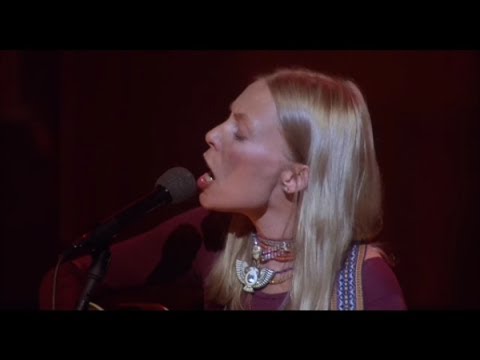Joni Mitchell was the queen of 70s folk, along with Carly Simon and Carole King. Her third album and masterpiece Blue has been recognized by critics, historians and music lovers as one of the cardinal points of contemporary music, not to mention its iconic value as a soundtrack for the feminist movement, whatever the wave may be.
Her influence runs through contemporary music from north to south and from east to west, but it shines with the intensity it deserves in kindred, idiosyncratic, possessed and androgynous spirits like Kate Bush, Alison Goldfrapp, St. Vincent or Joanna Newsom, who would not exist. without her because they would be something else.
A singer with a transparent voice. Few artists have managed to capture so accurately and with such sensitivity the different states of the soul. The Canadian, who made herself known in the hectic New York scene of the sixties, created a whole school with her confessional and delicate folk, always with a touch of pop varnish that distinguished her from other great female voices of that time such as Judy Collins or Joan Baez.
Those characteristics in her sound were emphasized with the release of “Court And Spark” (1974), one of her best works and the most commercially successful of her artistic career.
The story of her only top 10 US hit began in 1974, Joni Mitchell met a California saxophonist named Tom Scott and embarked on a fascinating musical adventure with Scott and his band, the fantastic L.A. Express, with whose drummer, John Guerin, had another intense romantic relationship: as they would comment, they spent hours and hours in bed enjoying sex and the music of Miles Davis, John Coltrane, Duke Ellington. “Help me”, perhaps the best song on the essential Court and Spark and her only top 10 US hit, is a formidable mix of pop rock and fusion jazz, one of the peaks of the genre.

